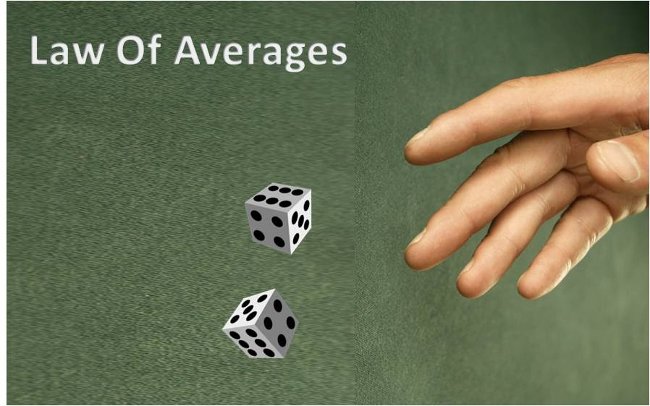5 ways to overcome Dale Carnegie's fear and anxiety
Dale Carnegie is one of the most famous authors on self-improvement , largely thanks to the best-selling book " Dac Nhan Tam " (The How to Win Friends and Influence People ), which was first published in the year. 1936. In 1948 he went on to publish the book " Quit the worries and happiness " ( How to Stop Worrying and Start Living ) to present effective psychological strategies to help you get rid of persistent worries. life is more depressing and work is also less effective.
The content of this book is accumulated from Carnegie's teaching experience when teaching adult courses at YMCA ( Young Men's Christian Association ) in New York. Carnegie realized that anxiety was a common problem that many of his students had, so he decided to write a book that would help people resist their own psychological worries.

During the seven-year period of writing this book for publication, Carnegie studied ancient philosophy and talked with business directors about their strategy of overcoming anxiety . Most importantly, however, he conducted a series of experiments by giving advice to his students to overcome worries and observe what he has done.
We have read the book " Burdening and worrying and living " and extracting the 5 most effective methods Carnegie drew from the life experience and knowledge from ancient philosophical research to help people have can overcome fear and worry.
1. Ask yourself "What is the worst thing that can happen?"

A simple 3-step method can help you quickly solve the headaches that surround us.
First, ask yourself what is the worst thing that can happen. Second, be prepared to accept the worst that can happen. Finally, find a solution to that worst possibility if it really happens.
This technique is built on the story of Willis Carrier , founder of the modern air conditioner industry. While working for the young Buffalo Forge company, Carrier realized that the company's clean air supply service was not as effective as he had hoped.
Carrier realized that the worst thing his company could encounter was a loss of $ 20,000. Then he accepted this with the thought: the money lost as a cost to study the new strategy. He proposed a solution by persuading the company to spend $ 5,000 to buy a new series of equipment. As a result, the company not only escaped the risk of financial loss but also brought about $ 15,000 profit.
2. Look at things objectively

Herbert E. Hawkes - former Dean of Columbia University, once told Carnegie: " If a person spends his time looking at things objectively, impartially, anxiety will disappear with the light of knowledge. ".
Carnegie pointed out two ways to look at things objectively: You can pretend that you are looking at things for others and not yourself, subjective emotions will no longer interfere with many. .
Or pretend to be a lawyer who is about to give evidence against the evidence that accuses you personally from the other side - so you need to gather all the evidence to resist. Write down what you use to protect yourself and resist yourself on the same sheet of paper, you will clearly see the two different sides of the problem.
3. Create feasible solutions to solve problems

Leon Shimkin - general manager of publishing Simon and Schuster, has found an effective way to minimize the time spent in staff meetings by 75%.
He told his colleagues that whenever they want to present any problems at the meeting, they must submit a memorandum before answering four questions: What is the problem? Causes of that problem? What solutions are feasible? What is the solution you want to suggest?
According to Leon Shimkin, since the introduction of this four-question system, his staff at the meeting seldom made any comments to discuss because they gave themselves answers to themselves. .
" They realized that to answer those four questions they had to face all the problems and think about them, " Shimkin told Carnegie. Since they follow this new system " reasonable solutions are easier to find ".
Understand the simple way that action will take the place of worries.
4. Remember the average law

The average content law relates to the probabilities of a specific incident - and you should consult this law to find a solution if it is worth " sorrow ". So, don't worry too much about what you think about, the probability of happening may be lower than you think.
Carnegie writes that the US Navy often uses average law to encourage sailor morale. Sailors who were originally assigned to have high octane tankers often felt anxious because those oil tanks had a high probability of exploding. Therefore, the Navy provided them with the following accurate data: 100 barrels of oil if hit by torpedoes, 60 barrels would float and only 5 barrels would sink into the water within 10 minutes, enough time for them to leave ship.
5. Put a "stop loss" on your worries

A stop loss order is a term used to trade stocks. An investor said: he has placed a stop loss order on every committed market. Here's how it works: Suppose you buy a stock with a selling price of $ 100 and place a stop loss of $ 90, if the price of the stock falls to $ 90, it will immediately be sold. out - without confirmation.
Clearly, it was Carnegiem's life, he had once dreamed of becoming a novelist but after a few years of trying his best without a certain result, he decided to stop to return to the pulpit. and writing books to teach people, has been very successful.
You can apply this rule in your daily life to realize what is a logical stop to get rid of your worries and find another way to be more successful.
Refer to some of the following articles:
- 11 skills are extremely difficult to learn but extremely helpful in the successful path
- 15 interesting psychological tricks everyone should know
- 16 lessons that changed lives after only one year living in Japan
You should read it
- ★ Overcome Fear and Anxiety with These 4 Mindset Shifts
- ★ Tips for Helping Your Child Overcome School Anxiety
- ★ The secret to having steel spirit in life
- ★ 8 things to remember when life is so hard that you want to give up
- ★ When you are young, you should know these 7 things so you don't have to regret it!